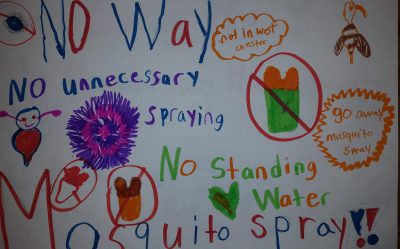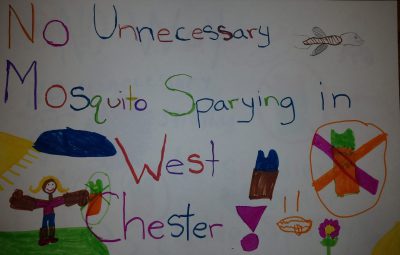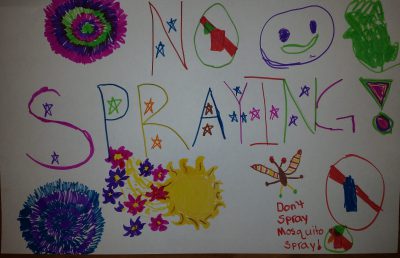Life cycle description from the EPA:
All mosquito species go through four distinct stages during their life cycle:
egg – hatches when exposed to water
larva – (plural: larvae) “wriggler” lives in water; molts several times; most species surface to breathe air
pupa – (plural: pupae) “tumbler” does not feed; stage just before emerging as adult
adult – flies short time after emerging and after its body parts have hardened.
The first three stages occur in water, but the adult is an active flying insect. Only the female mosquito bites and feeds on the blood of humans or other animals.
After she obtains a blood meal, the female mosquito lays the eggs directly on or near water, soil and at the base of some plants in places that may fill with water. The eggs can survive dry conditions for a few months.
The eggs hatch in water and a mosquito larva or “wriggler” emerges. The length of time to hatch depends on water temperature, food and type of mosquito.
The larva lives in the water, feeds and develops into the third stage of the life cycle called, a pupa or “tumbler.” The pupa also lives in the water but no longer feeds.
Finally, the mosquito emerges from the pupal case after two days to a week in the pupal stage.
The life cycle typically takes up two weeks, but depending on conditions, it can range from 4 days to as long as a month.
The adult mosquito emerges onto the water’s surface and flies away, ready to begin its life cycle.















